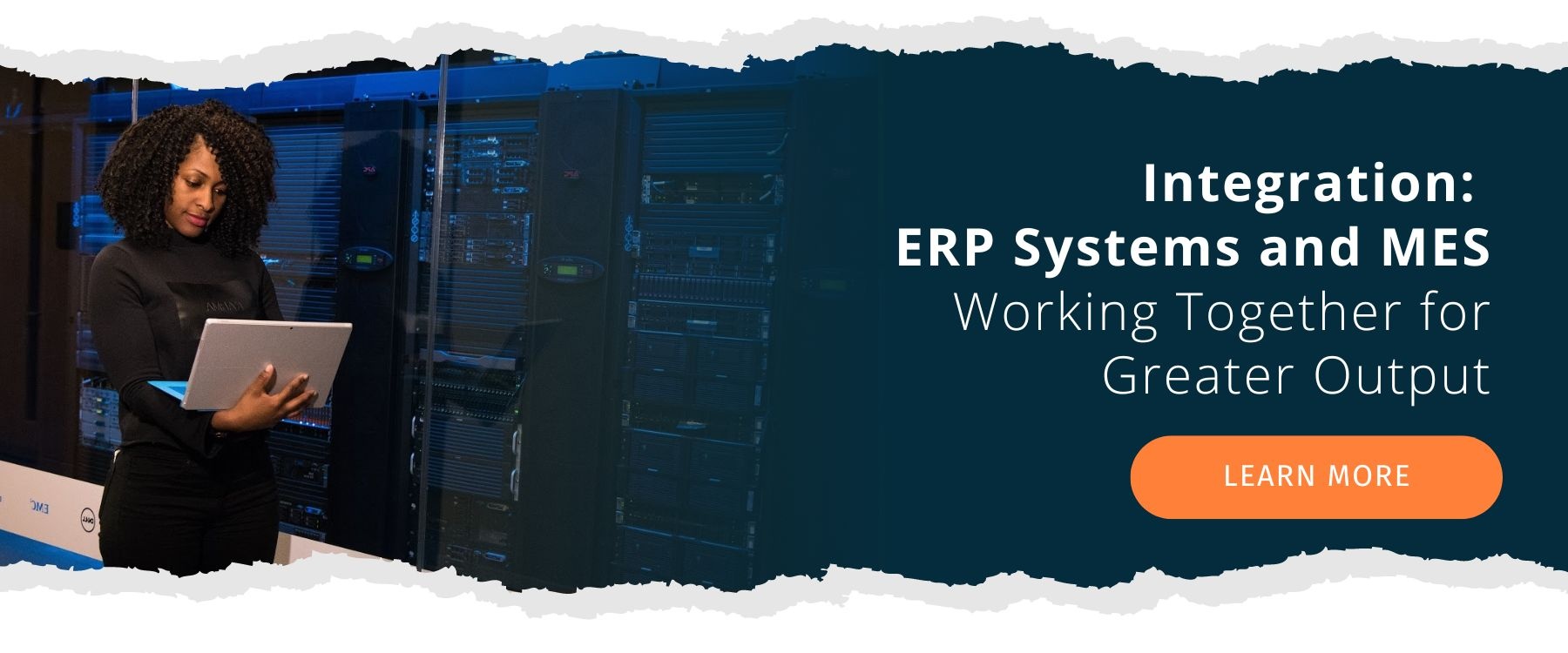What is Enterprise Resource Planning (ERP)?
The lifeblood of any business is information. Organizing, accessing and keeping this vital data...
By: Intraratio Team on Nov 16, 2022

With today’s drive to produce higher quantity, better quality and less-expensive goods, Operations Executives and Managers are actively seeking opportunities for automation. Decision makers often choose to invest in computer hardware and software that capture, share and act upon business and production data to reduce costs and improve performance.
Two such digital arrangements are the Manufacturing Execution System (MES) and the Enterprise Resource Planning (ERP) system. MES and ERP often crossover in areas of functionality, but each one has a separate, specially designed purpose. If you are trying to decide between an MES or ERP solution for your production facility, you will want to provide thoughtful answers to the following questions before making your final choice.

The decision to implement MES or ERP usually emerges from a need to improve performance and lower costs. Both MES and ERP can provide a pathway to accomplish these goals; however, the results of each system coalesce in different areas of the organizational structure.
MES deals with the actual details on the production floor. Gauging machine performance, production rates and inventory in real time make MES a vital part of realizing maximum profit from the physical processes involved in manufacturing.
ERP provides an excellent way for an organization to tie each separate department together via information channels connected to a single data source. Making information easily shareable gives management needed tools for guiding the direction of the company.
The government imposes strict regulations on various sectors in an attempt to guard public safety.

If your facility resides in one of these sectors, MES’s ability to track each step of production and provide detailed product genealogy proves invaluable. ERP systems can work well in situations where the physical manufacturing process is secondary to the management and accounting functions of the institution.
An integration of MES and ERP usually provides the advanced capabilities throughout entire organizations that companies need to stay competitive well into the future.
These systems should also include web-enabled device interfaces to allow easy access and control of data plus the ability to run from the cloud to enhance scalability, multi-factory deployments and realtime data backups. Two-way communication across platforms between ERP and MES allows the two to run as a combined solution so your company can realize the benefits of both systems.
Intraratio has proven experience in helping companies realize the power of MES solutions integrated with existing or new ERP systems. Download our white paper for a complete analysis of how these systems can function together to help you reduce waste and increase product profitability.
3 Things To Think About When Choosing Between an ERP or MES System - If you are trying to decide between an MES or ERP solution, you will want to provide answers to the following questions before making your final choice.
What you need to know about eDHR - Let's dive into the details on why electronic device history records (eDHRs) are taking the place of paper-based device histories.
Eliminate Manual Data Collection in Manufacturing - Many manufacturers, realizing the inefficiencies of paper, are making steps toward digitization. Learn with us what you need to evaluate when going digital.
The lifeblood of any business is information. Organizing, accessing and keeping this vital data...
In today's ever-changing manufacturing ecosystem, being highly efficient, providing exemplary...
Silicon Photonics has been identified by the global market research firm IDTechEx as one of the...